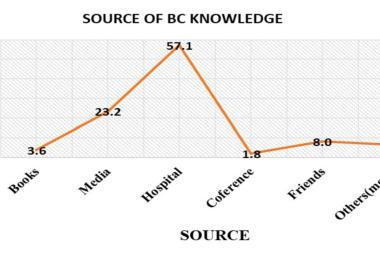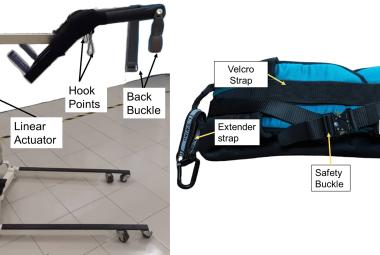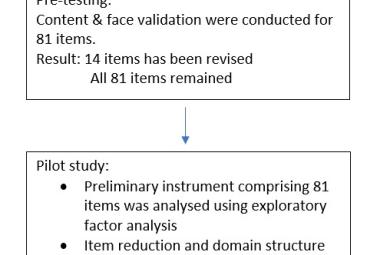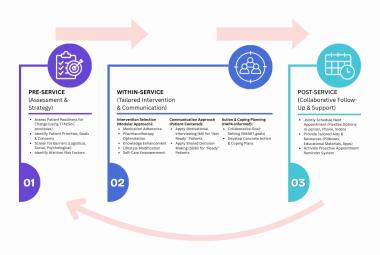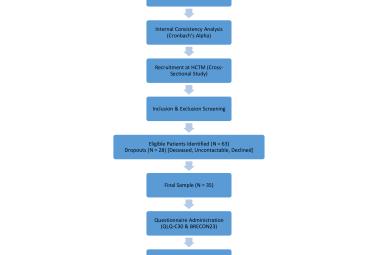The Association between Neuroticism Personality Traits and Depressive Psychopathology with Quality of Life among Diabetic Patients
Neuroticism, Depression and QoL in DM
Abstract
Diabetes mellitus (DM) is a chronic medical condition associated with psychological sequelae like depression and linked with specific personality traits. This study researched on quality of life (QoL) among patients with DM and its association with mood symptoms and personality traits. 291 diabetic respondents were recruited, where their socio-demographic data and other relevant profile were collected using the Beck Depression Inventory II (BDI-II), Generalized Anxiety Disorder scale (GAD-7), Big Five Inventory (BFI) and World Health Organization Quality of Life Instrument-Short Form questionnaire (WHOQoL-BREF). The mean age of the respondents was 60.43 years with approximately half of the respondents being males and married. Most respondents have been diagnosed with type 2 diabetes (N = 261, 89.7%) and the median duration of diabetes diagnosis was 14.17 years (SD = 9.72). The association between personality traits, psychological complications, and QoL after adjusting for demographic, personal, and clinical characteristics were studied. Based on the multiple linear regression models, after adjusting for age, employment, education status, monthly income, perceived social support, duration of DM and other variables, we found that the neuroticism (BFI) and mean BDI score was associated with poorer QoL, respectively. 1-unit increase in these two variables leading to 3.5- and 0.6-point decrease in QoL, (-3.465 (95% confidence interval, CI -5.788 to -1.143) and -0.560 (95% CI -0.779 to -0.341)) with p<0.001, respectively. An intervention focusing on the neuroticism and elevating the depressive psychopathology would help in the psychological management of patients with DM.
Keywords :
depression,
Diabetes mellitus,
neuroticism,
quality of life,
Abstrak
Diabetes mellitus (DM) merupakan penyakit perubatan kronik yang terkait dengan sekuele psikologi dan trait personaliti khusus yang tertentu. Kajian ini bertujuan untuk mengkaji hubungan kualiti kehidupan (QoL) di kalangan pesakit DM dengan gejala 'mood' dan trait personaliti. Seramai 291 responden DM direkrut, di mana data sosio-demografik dan profil yang relevan menggunakan soal-selidik Beck Depression Inventory II (BDI-II), Generalized Anxiety Disorder scale (GAD-7), Big Five Inventory (BFI) dan World Health Organization Quality of Life Instrument-Short Form questionnaire (WHOQoL-BREF) telah direkodkan. Min umur responden adalah 60.43 tahun, di mana hampir separuh daripada mereka adalah lelaki dan telah berkahwin. Kebanyakan responden telah didiagnosa mengalami penyakit diabetes jenis 2 (N = 261, 89.7%) dan median tempoh mengalami penyakit ialah 14.17 tahun (sisihan piawai, SD = 9.72). Perkaitan di antara trait personaliti, komplikasi psikologi dan QoL telah diselaraskan mengikut data demografik, peribadi dan ciri klinikal. Berdasarkan model 'multiple linear regression', selepas penyelarasan mengikut umur, pekerjaan, status pendidikan, pendapatan bulanan, persepsi sokongan sosial, tempoh DM dan variabel lain, kami mendapati neurotisma (BFI) dan min skor BDI masing-masing dikaitkan dengan QoL yang rendah. Kenaikan 1-unit di dalam dua variabel tersebut menyebabkan 3.5 dan 0.6-poin skor pengurangan di dalam QoL (3.465 (95% julat keyakinan, CI -5.788 hingga -1.143) dan -0.560 (95% CI -0.779 to -0.341)) masing-masing dengan nilai p<0.001. Sesungguhnya, intervensi dengan memberi fokus kepada neurotisme dan peningkatan gejala psikopatologi kemurungan dapat membantu perawatan psikologi dalam kalangan para pesakit DM.
Kata Kunci :
diabetes melitus,
kemurungan,
kualiti kehidupan (QoL),
neurotisma,
Correspondance Address
Professor Dr. Hatta Sidi. Department of Psychiatry, Faculty of Medicine, Universiti Kebangsaan Malaysia Medical Centre, Jalan Yaacob Latif, Bandar Tun Razak, 56000 Cheras, Kuala Lumpur, Malaysia. Tel: +603-9145 6143 Email: hattasidi@hotmail.com


